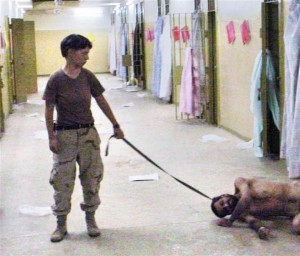Prelude
(That means you can skip this part.)
Break your mind open: you’re a label maker.
Written language and formal logic are inextricably intertwined; verbal language is a pre-requisite for many types of mental reasoning, we can theorize; many people believe that we cannot think much or at all outside of language.
Regardless, it holds that language is thought, and some thought, at least, is language.
In the real world, using logic –that is, reasoning with fixed sets of rules–is primarily an exercise in labeling. In the real world, using language is completely an exercise in labeling. Language is very much a logic, and vice versa–and need I say again that both are labeling? No.
Now your mind is open to see that you are a label maker, in a community of label makers.
Now the world is open as you see that every boundary, the line between the end of the mug and the beginning of the hand, e.g, is arbitrary, unreal, and human-defined.
Now you can talk to me, and use words like ‘mughand.’
Shh, pass this secret on: sports are not just sports.
As the professor would say, all of this should be review.
—————–
One Frontier of Thought
Now we all stand on the same pageidea. I have a request/proposal. It will same, I mean seem, even more lame than what I just said, but is important.
Some things can have two labels. From you.
That explanation of why this is not asinine to say will take me the rest of this article.
By two labels, I don’t mean synonyms. We all already use many words for the same label, facilely, and various words for closely related labels. I’m not talking about words.
So I’m not talking about different languages like Portuguese and Danish; I don’t mean lying, like calling a penguin a horse; I don’t mean subsets or supersets, like calling your lamp a yellow lamp or a light-emitting device*; I don’t mean changing your mind about something, like deciding that a cellphone charger is not a cellphone charger after all, but a broken cellphone charger; I don’t mean any of these things. And of course I don’t mean labeling two different things, or breaking your cell phone charger so that its label no longer applies. What I’m talking about is rather rare. One thing, two labels.
And emphatically do I not mean holding two opinions about something and/or seeing both sides of an issue, like saying legalizing smiling is both right and wrong, for various conflicting reasons, or in various different situations. What I am very weakly and carefully attempting to describe are our labels for what a single thing actually is, objectively; our explanation of a thing, to ourselves; the chunks of logic we use to describe different parts of the world, when we think about them.
Are you working on a good label for ‘label’ as I try to explain?
Get a good hold of it, maybe on an index card, and now notice that it has two sides. Because every label also defines what it is not, and what is not it.
Imagine yourself with a deck of such cards, ready to and currently categorizing the world. (You thinker you!)
Now that we’re all metaphored-up, what I am requesting here, so lamely, is to try folding a card without tearing it. On one side, one label for a thing; on the same side, but turned away at an angle by the fold, completely different label for the same thing.
Now perch your folded card on the tabletop and flick it like a miniature football at whatever arguments you wish, pegging each one right in the eye.
Here are some examples. (I find it is easiest to give two labels to things that we don’t understand.**)
Dreams: meaningless subconscious churning or meaningful symbolic communication?
Both!
Too far of a reach? Do you feel one must be wrong? Try this:
The external world: objective physical reality or simply our perception?
I agree!
Easier? No? How about this one, that’s about actual events rather than our take on something:
Divine creation in 7 days via evolution?
Sorry I wasn’t there to see it happen!
Still no? Here, try a classic:
What came first, the chicken or the egg?
Yes!
Maybe? Or for those who like potential worlds:
The next President of the United States is right now many people.
Future paradox doesn’t bother us as much, does it? Even though only one person will be president, so this doesn’t make any more sense than the other examples.
If all this is still too rarefied, look back:
What do labels define?
Both what they are not, and what is not them.
Quite different things, but equally exactly one single thing that is always defined by labels. This example should convince you that I’m not just playing with words. Paradoxes are part of logic. Necessarily. There is no arguing with this. In fact, they’re a good healthy important part, that we can and should think and use, like all the rest of logic. Think and use paradox.
One more, sort of a beginners version:
Did I put my foot in the sock, or did I put the sock on my foot?
I did both at once!
Now you see how good you are at this game already, I hope. We all have room for growth until we’re dead. You can practice it until you think your blankets actually make you cold, or that your sandwich is eating you. At that point take a break.***
If I might switch metaphors, imagine your label is a figure skater going to spin. It turns slowly at first. Chicken. Could be. Egg. Could be. Chicken. Egg. Then, like the skater, it tightens its form and accelerates–chicken egg chicken egg–until it becomes a blur, that by certain standards of measurement could not be said to facing in any direction at all. A blur, that by certain standards of measurement could be said to be facing in all directions at once. When your mind can pirouette like this, you have achieved—chickenegg. It really is both.
Zen koans will now melt in your mind like cream cheese in a laser beam. I’m a little sorry to have ruined them for you, but this is what they were for. Quantum physics will no longer make more sense than regular physics except for the paradoxes: it will just make more sense than regular physics.
Again I want to assert that I am not just playing with words: the physical world at the tiniest and greatest levels even agrees with me, and that’s a pretty big endorsement. And its also a pretty big demand, and my reason for trudging through this banal discourse: we have reached the point, with some questions of scientific inquiry, where we cannot proceed without paradox. The only question is whether you want to come along, or throw up your hands, say “Undecidable!” and go to bed early. I like both approaches.
And isn’t this also selfish of me to suggest? Because when we argue next, you are sure to see my point of view.
Let me leave you with some evidence of a bight future: a little girl had this math problem on her homework: 78 x 43. What was her answer?
78 x 43 = 78 x 43
*which it is, and you can, I mean already do, usually with great benefits. But those are two different things you are labeling.
**If you want to try your mindhand at redefining some things you already understand, that’s for extra credit. Let me know how it goes.
***And I would not try folding a label more than once, only because down that path lie ideas like “My blankets are giraffes.”
———-
Postlude
(that means you can skip this part too)
I have written books about the limitations of thought, the nature of thought, the joy of thought, thought combat, types of thought, expanding thought, healthy and unhealthy thought, sources of thought, the meaning of thought, the mechanisms of thought, and of course, the application of thought. And several others I don’t want to list here. And now we come to the frontiers of thought, about one of which I have just written more. What will I do with all these books? I don’t know. I’m still thinking about it.




